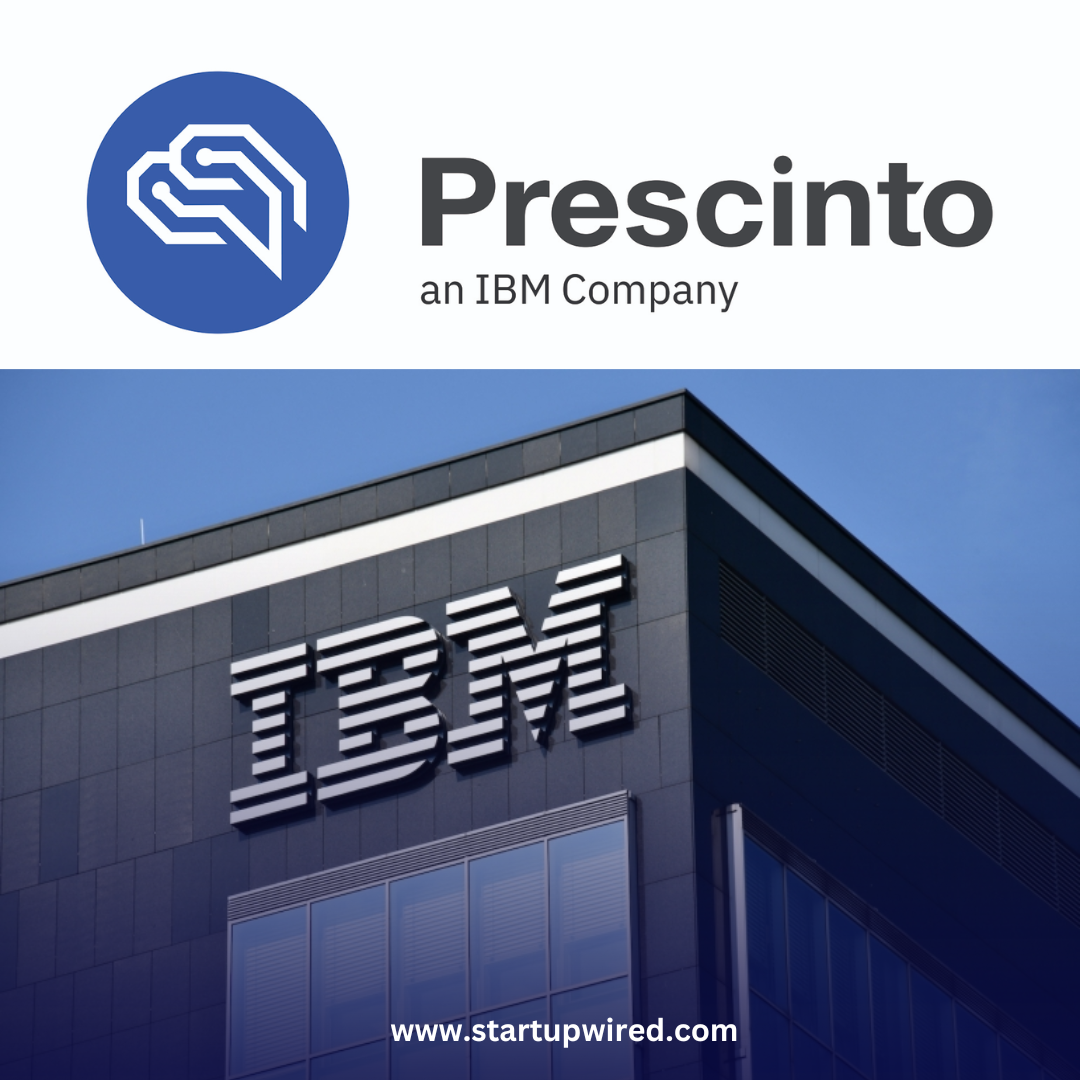IBM, a global leader in technology and enterprise solutions, has announced the acquisition of Prescinto Technologies, a Bengaluru-based SaaS provider specializing in asset performance management (APM) for the renewable energy sector. This acquisition aligns with IBM’s commitment to expanding its sustainability offerings and strengthens the IBM Maximo Application Suite (MAS), which is used by multiple industries to manage their critical assets.
The acquisition is part of IBM’s broader strategy to enhance its capabilities in renewables and clean energy asset management. It brings AI-powered monitoring, automation, and analytics tools into IBM’s portfolio, which will help utility companies, power grids, and renewable energy providers manage their infrastructure with greater efficiency and achieve their sustainability goals.
Prescinto’s Background and Capabilities
Prescinto was founded by Puneet Jaggi, Anmol Jaggi, and Sanjay Bhasin and has rapidly made a mark in the renewable energy space. The firm has expertise in asset performance management for solar, wind, and energy storage systems. Its software uses AI-powered analytics and automation tools to streamline operations and provide advanced insights into energy asset performance.
Prescinto currently supports 16 Gigawatts of renewable assets across 14 countries, serving a range of global clients. The platform offers near real-time monitoring capabilities, helping operators optimize energy production, detect faults early, and reduce operational costs. This makes it an invaluable tool for clean energy companies and utilities managing large-scale solar or wind farms.
In 2021, Prescinto raised $3.5 million in a seed funding round led by Venture Catalysts, which helped it scale operations and expand its technology stack. The company’s co-founders, Puneet and Anmol Jaggi, are also known for their work with BluSmart, an electric mobility company that aligns with their focus on sustainability and innovation.
Enhancing IBM Maximo with Renewables Management
IBM’s Maximo Application Suite (MAS) is a comprehensive platform for asset lifecycle management, widely used in industries such as water, oil, gas, and nuclear energy. With the integration of Prescinto’s capabilities, MAS will now cater more extensively to the renewable energy sector, supporting solar, wind, and energy storage assets alongside existing utilities.
The acquisition enables IBM to offer advanced analytics, AI-powered performance insights, and automated workflows to its renewable energy clients. These capabilities will allow energy operators to:
- Monitor and optimize energy production in real-time.
- Track performance trends and proactively identify system faults.
- Improve operational efficiency and extend asset lifespan.
- Support net-zero initiatives by enabling better energy management and reporting tools.
IBM noted that several energy and utility companies already utilize Maximo, and the inclusion of Prescinto’s software will allow these clients to further reduce emissions and meet sustainability goals with greater transparency and control.
Strategic Value of the Acquisition
The acquisition of Prescinto comes at a time when companies worldwide are increasing investments in renewable energy to combat climate change and meet global sustainability commitments. By expanding its capabilities in this area, IBM strengthens its position as a technology partner for energy companies transitioning to clean energy sources.
This acquisition also fits into the broader trend of digitalization in the energy sector, where companies are leveraging AI and data analytics to optimize their infrastructure and improve efficiency. Integrating AI-powered monitoring solutions within Maximo will give IBM a competitive advantage in the evolving energy market, where managing complex and distributed renewable assets is becoming increasingly critical.
Driving Sustainability and Net-zero Initiatives
Sustainability has become a top priority for corporations, and IBM’s acquisition of Prescinto reflects the company’s long-term focus on environmental responsibility. With the ability to track and report energy metrics in real-time, IBM’s enhanced asset management platform will empower clients to optimize energy consumption and reduce carbon emissions.
The expanded Maximo suite will also enable clients to meet net-zero targets by providing actionable insights into energy operations. As companies adopt more renewable sources and phase out fossil fuels, having a robust management platform will be essential to achieving operational excellence while meeting regulatory requirements and sustainability benchmarks.
Future Outlook and Industry Impact
This acquisition places IBM at the forefront of renewable energy asset management. It will not only enhance the capabilities of its existing Maximo platform but also open new avenues in renewables-focused SaaS solutions. As IBM integrates Prescinto’s technology, it is expected to offer tailored solutions for renewable operators, reinforcing its role as a global technology leader in asset management and sustainability.
The combination of AI and renewable energy management presents exciting opportunities for growth in the energy sector. Operators can now leverage IBM’s expanded capabilities to increase asset uptime, reduce operational risks, and enhance financial returns on energy investments.
In an environment where clean energy adoption is accelerating, IBM’s move is both timely and strategic. It positions the company to play a key role in helping industries transition toward cleaner energy systems, ensuring that their infrastructure remains efficient and future-ready.
Conclusion
IBM’s acquisition of Prescinto reflects a significant step toward strengthening its asset management offerings in the renewable energy space. The integration of Prescinto’s AI-powered APM capabilities into IBM’s Maximo Application Suite will enhance the ability of energy and utility companies to monitor, optimize, and manage renewable energy assets.
This acquisition aligns with IBM’s commitment to sustainability and supporting net-zero goals, positioning the company as a crucial partner in the global energy transition. As renewable energy adoption grows, IBM’s enhanced platform will empower clients to drive operational efficiency, meet sustainability targets, and create long-term value in a competitive market.
